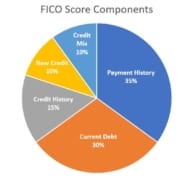Why Is the Mortgage Process So Long?
Understanding the timeline, what’s happening behind the scenes, and how you can help speed things up.
Buying a home is exciting, but if you’ve ever felt like the mortgage process drags on forever, you’re not alone. Many buyers are surprised at how much time it takes between applying for a loan and finally closing on their dream home.
So… why does it take so long? Let’s pull back the curtain on the mortgage process and give you some helpful tips to keep things moving.
The Typical Mortgage Timeline
While every loan is different, the average mortgage process takes around 30–45 days from application to closing. Some may wrap up sooner, while others take longer depending on several factors.
Here’s a general breakdown of the timeline:
-
Pre-Approval (1–3 Days)
A lender reviews your financials and provides a letter showing how much you’re qualified to borrow.
-
House Hunting (Varies)
This part is totally in your hands! Some buyers find “the one” quickly, while others take weeks or months.
-
Loan Application (1–3 Days)
Once you have an accepted offer, you’ll complete a full mortgage application and provide detailed financial documents.
-
Processing & Underwriting (1–3 Weeks)
Behind the scenes, the lender reviews everything: income, credit, assets, tax returns, employment, and more.
The underwriter ensures the loan meets guidelines and may request additional info (called “conditions”). -
Appraisal & Inspection (1–2 Weeks)
An appraisal ensures the home’s value matches the loan amount. Inspections (while optional) protect you from surprises.
-
Final Approval & Closing (1–2 Weeks)
After all documents and conditions are cleared, you’ll get a clear-to-close. Then comes the final walkthrough and closing day!
What’s Taking So Long?
It may seem slow, but a lot is happening behind the scenes:
- Verifying Documents: Lenders must carefully check pay stubs, tax returns, bank statements, and more.
- Third-Party Delays: Appraisers, inspectors, title companies, and insurance providers are all integral to the process, and each has its own specific timeline.
- Regulations: Mortgage lending is highly regulated to protect buyers, but that also means more boxes to check.
- Loan Volume: During busy seasons, such as spring and summer, processing times may be longer due to high demand.
How You Can Help Speed Things Up
Good news — there are a few things you can do to help your mortgage process move faster and smoother:
-
Get Pre-Approved Early
Know your budget and streamline the process once you find a home.
-
Respond Quickly
When your lender requests documents or signatures, the faster you reply, the faster things move.
-
Stay Financially Stable
Avoid big purchases, job changes, or new credit applications during the process.
-
Keep Documents Organized
Have your W-2s, tax returns, bank statements, and ID ready to go.
-
Work With a Responsive Lender
Partnering with a proactive, communicative mortgage team (like ours!) can make all the difference.
Final Thoughts
Yes, the mortgage process can feel long, but that’s because your lender is working hard to make sure your loan is rock-solid. With a little preparation, the right mindset, and the right team, you can make it through with fewer delays and less stress.
At Michigan Mortgage, we walk with you every step of the way — keeping you informed, on track, and moving toward the keys to your new home.
Ready to start your mortgage journey?
Let’s talk! Our friendly loan experts are here to guide you from pre-approval to closing day and beyond.











